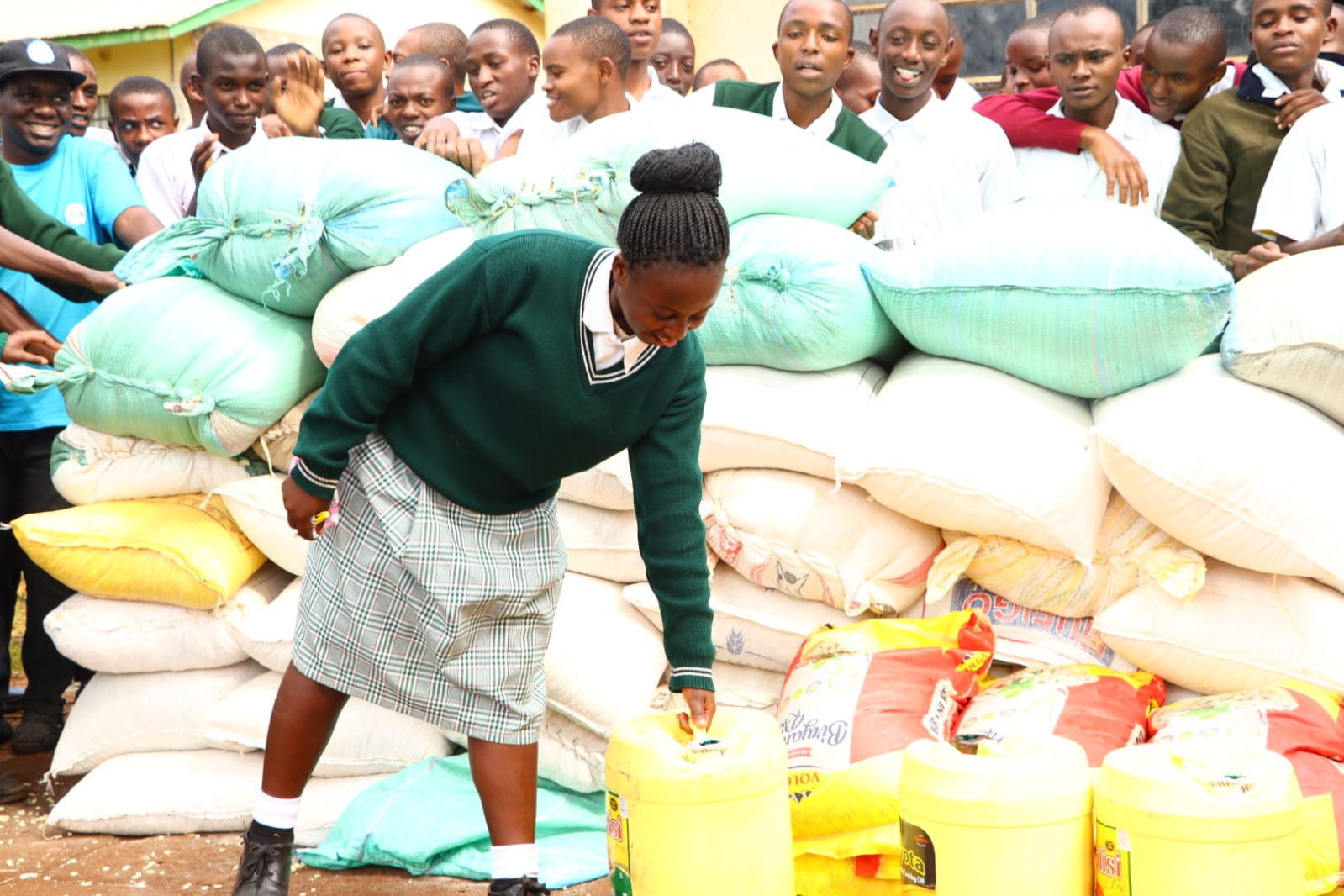
Child Welfare Society takes school feeding initiative to 77 schools » Capital News
NAIROBI, Kenya, Jun 1 — The Child Welfare Society of Kenya (CWSK) has rolled out the second phase of its school feeding initiative targeting seventy-seven schools in three counties.
The society, working under the Ministry of Labour and Social Protection, said the initiative will reach over 18,000 learners across public secondary day schools in Nyandarua, Nyeri and Elgeyo Marakwet counties.
In a three-day distribution exercise that ended Friday, the society provided the targeted schools with assorted food items including rice, maize, cowpeas, cooking oil and learning materials.
The intervention supported by local legislators is part of a broader effort to address food insecurity and improve educational outcomes among children from low-income families.
Studies have shown that hunger and malnutrition can significantly hinder a child’s ability to concentrate and perform academically.
Pilot Programme
For the first time, CWSK launched the drive in Mukuruwe-ini constituency where 4,000 learners will enjoy daily meals from the scaled-up initiative.
The food support which is part of the organisation’s mandate to protect and promote the best interests and welfare of children and young persons in the country reached 7,637 students from 29 schools within Kipipiri and 6,000 others from 26 schools in Keiyo South.
“We don’t want any of our learners to miss school and engage in child labour because there is no food,” CWSK Programmes Manager Vera Ong’uti said.
“We believe apart from reducing the financial burden on parents the initiative will also improve the nutritional status of school children, as well as increase their enrolment, retention and completion rate,” she added.
Principals of the schools visited welcomed a move by MPs to reinstate the school feeding programme which had been scrapped by Treasury in the proposed budget estimates for the financial year 2024/25 sparking uproar among stakeholders.
Supporting learning
They warned that removal of the programme would have led to an increase in school dropout cases particularly in ASAL areas where a majority of the needy parents can barely provide basic meals to their children.
The National Assembly Education Committee reversed the decision and reinstated Sh2 billion capitation against a Sh 4.9 billion budget allocation in the financial year ending June 30, 2024.
“The committee recommends that the Budget and Appropriations Committee considers allocating an additional Sh3 billion so that the entire amount is reinstated,” Education Committee chair Julius Melly told the Appropriations Committee.
CWSK CEO Irene Mureithi reiterated the society’s commitment to partner with both the national and county governments to safeguard the welfare of children and most importantly protect their rights.
“The intervention is effective in curbing teen pregnancies and child labour. The school environment is, therefore a suitable platform to reduce the risks “, she said.
Keiyo South is among areas in the North Rift region facing high absenteeism owing to poverty and hunger.
CWSK hopes to expand the programme active in six counties to four more counties.
